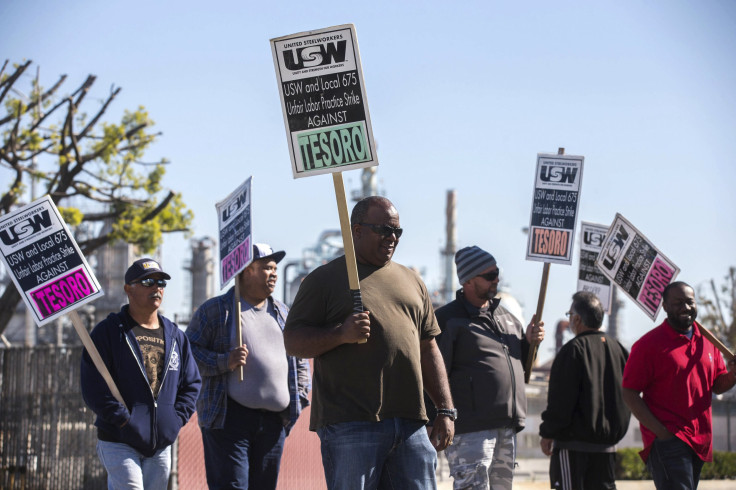Oil Refinery Strike 2015: Tentative National Agreement Reached, Local Bargaining Ensues

The largest U.S. refinery strike in three decades could soon come to a close. Last week, the United Steelworkers union and Royal Dutch Shell, which is bargaining on behalf of industry, reached a tentative national agreement. If union locals approve the national contract -- which is designed to set industrywide standards -- the work stoppage will end for good.
The offer has already been accepted at 20 sites, according to a Sunday night text message alert from the Steelworkers. But in the same message, the union noted that Tesoro, LyondellBasell, BP, Marathon and other oil companies “still face challenges with local issues.” (Individual employers can also make their own offers, but are expected to follow the national deal.) Overall, the USW represents about 35,000 workers at 65 refineries.
Workers walked out Feb. 1 after contract negotiations collapsed. At its peak, the strike involved 7,000 workers at 15 plants.
National representatives for both the union and Shell praised the tentative agreement.
“We are glad to have found common ground and get an agreement in place,” Aamir Farid, vice president of manufacturing for Shell, said in a statement.
The Steelworkers, which have emphasized safety issues throughout the strike, say the tentative contract includes the immediate review of staffing and workload assessments, and addresses questions around daily maintenance and repair work. The union has argued that refineries’ practice of contracting out maintenance tasks to non-union workers presents safety risks.
The deal also includes modest wage increases and a renewal of current health care cost sharing, according to Shell.
“We salute the solidarity exhibited by our membership,” Steelworkers President Leo Gerard said last week in a statement. “There was no way we would have won vast improvements in safety and staffing without it.”
If approved, the four-year agreement would last until Jan. 31, 2019.
© Copyright IBTimes 2025. All rights reserved.





















